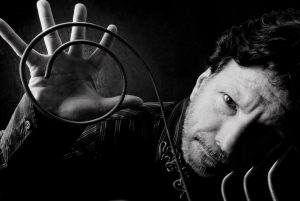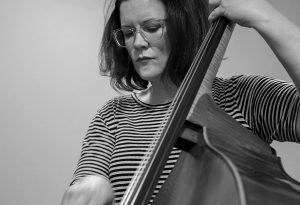http://ginorobair.com

Carl Ludwig Hübsch: „Gino, from the point of a listener, how do you tell whether an improvisation is good or not?“
Gino Robair: „As I listen to the sounds, I want to feel like they have a sort of spontaneity and direction; that the musicians are not noodling, but are going in some sort of direction with the improvisation. So, that’s one thing I am listening for. Do they have intent, or are they looking for intent?
Second, I like it when the instruments are melding in such a way that I can’t always tell which person is making which sound.“
Hübsch: „Is there something an improviser has to know that an interpreter doesn’t have to know?“

 ©ScottFriedlander
©ScottFriedlander